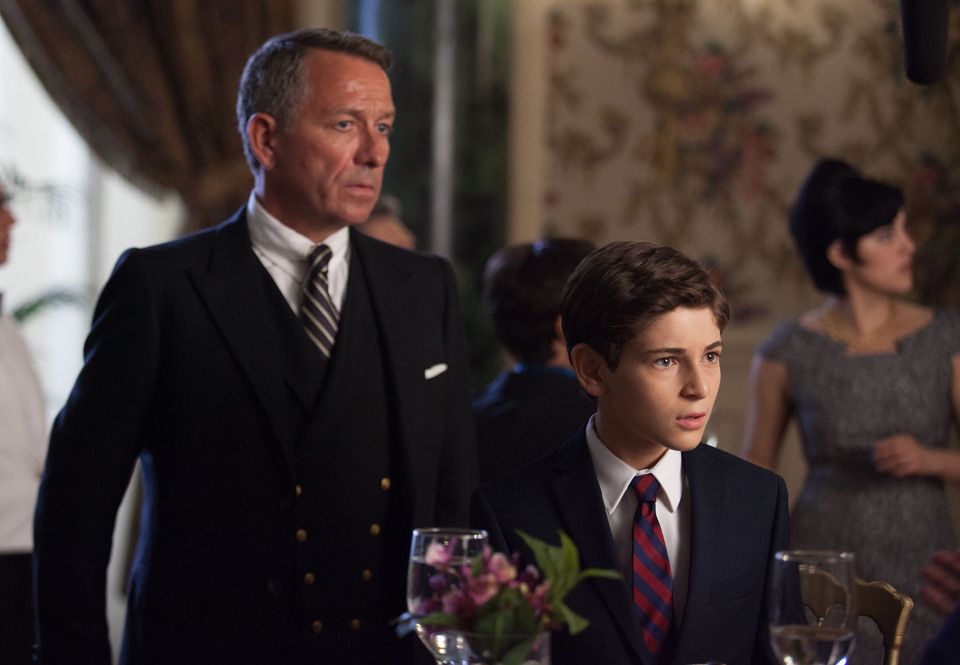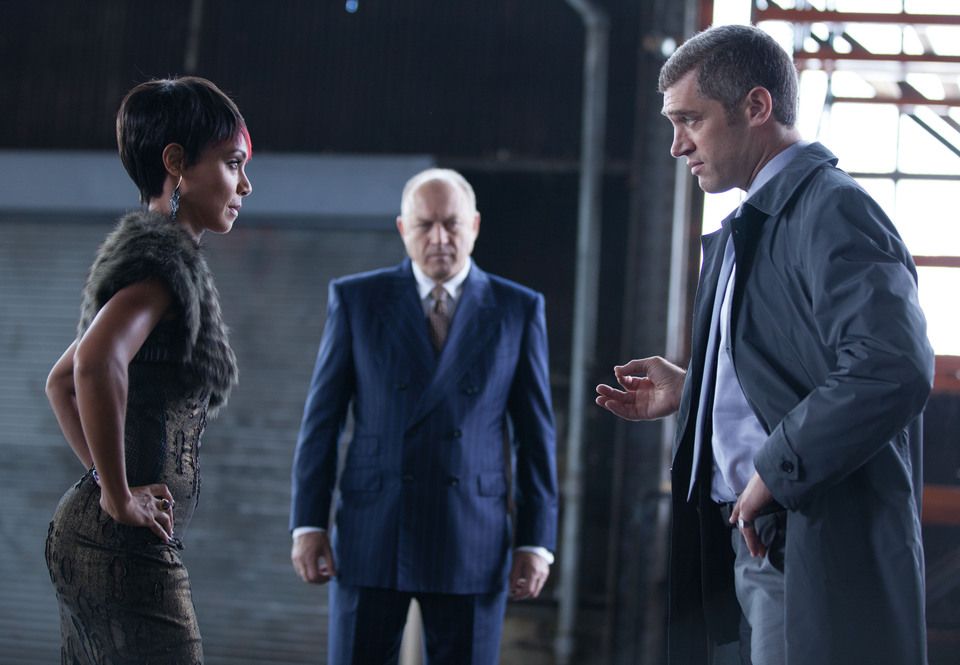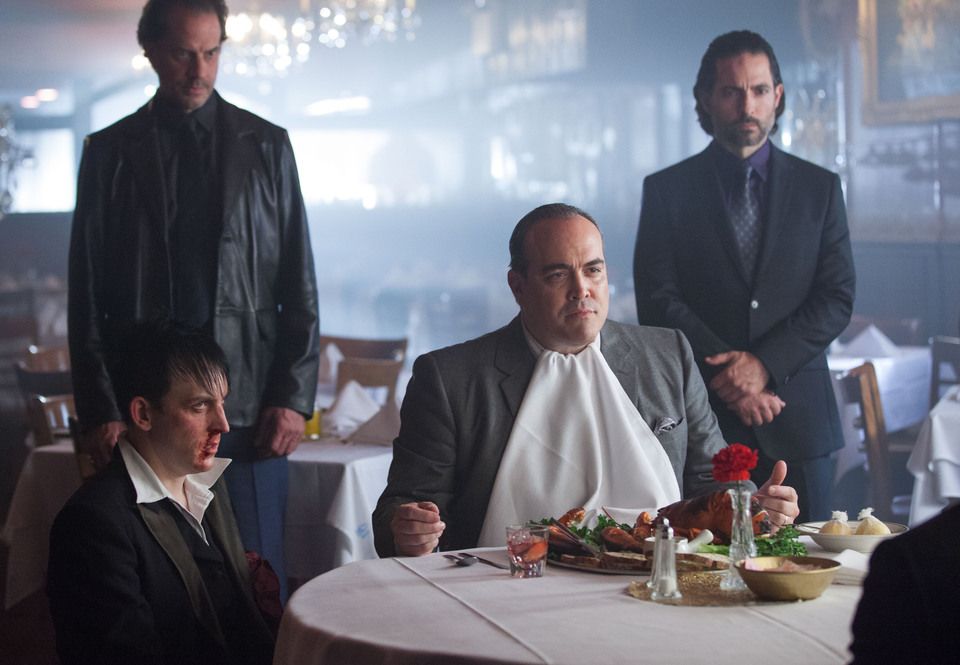The first victim of Gotham's latest proto-villain is a busker with a sign that reads "Why lie? Need money for drugs." It's a cheap joke, but it adds just a little bit of black humor. And those off-kilter elements made the entire hour of the fumbling Fox drama pick up ever so slightly.
The villain is the deliverer of the eponymous street drug Viper (not the guy who comes to vipe your vindows). From the moment he drops a vial of the neon-green liquid into the lap of the vagrant, the episode has a more ridiculous edge. Our addict goes from street singer to raged-out milk fiend, tearing an ATM out of a store with his bare hands to buy up more 2 percent. When his bones collapse as he holds the cash machine over his head, it's just silly enough for the audience to say, "Sure, let's go with this."
On the much higher end of society, young Bruce Wayne is finally starting to find some clues as to why his parents might have been targeted for execution. For the first time, the story of young Batman feels like it's actually moving forward, and that springs from some definition for the broken boy. When Bruce tells his still resistant Alfred, "I don't want revenge. I want to understand how it all works -- how Gotham works," we start to see a bit of the superhero mind that can overcome tragedy with conviction.
And perhaps most surprisingly, the actions of series lead detectives Jim Gordon and Harvey Bullock start to feel like they're showing us a story rather than telling it with a blunt cudgel. Bullock's "I know just the place" is focused on burger carts as Donal Logue is finally able to inject some jocular gruffness into the character. And Gordon's cowboy attitude gives the pair a kind of Starsky and Hutch, "This again?" charm. These guys finally have a rapport, some actual chemistry.
But the real sparks in the hour come from Gotham's mafia set. From clashing with a rival captain in the Falcone crime organization (a player straight from Eastern Block Central Casting) to grooming her new skylark to lie to men, Fish Mooney is consistently ridiculous in a classic comic book way. And while the turns in these stories (that Fish is sleeping with her slick rival while molding her singer to have some Oedipal appeal for Boss Falcone) feel a bit predictable in hindsight, they delivered some confident complications. Oswald Cobblepot's final entry into Boss Maroni's confidence (coming as it did thanks to Gordon's honesty) feels less significant but equally welcome.
And don't think for a second these small improvements let Gotham off the hook for its generally turgid state.
This episode still contains the kind of "drive a truck through them" plot holes that destroy all suspension of disbelief. Why are so many people compelled to just snort a bottle of poisonous-looking liquid given to them by an anonymous freak? Will Gordon and Bullock ever solve a case with police methods other than "ask a bunch of randos until you trip over the luckiest break in the world"? We are still miles away from television that feels exciting and surprising. But for one week at least, the show has seen its scales tip in favor of its more stylized, entertaining qualities.
When Gordon and Bullock track a professor allied with the killer (himself a formerly ethical scientist in a Wayne pharmaceutical subsidiary), what we get is a genuinely weirdo fight scene that involves an octogenarian rage monster twisting his walker into a pretzel. This is not storytelling with the subtlety of Sherlock, but at least it's fun.
While it was evident almost from the opening of the series that this interpretation of Batman would be a little more Adam West than Christopher Nolan, it remained to be seen whether Gotham would embrace its silliness. The story from writer Rebecca Perry-Cutter leans into the camp and is all the better for it.
And as the more darkly comic touches swirled around them, the tracks of our main characters tied together in a manner that added some depth to Gotham (as opposed to last week's incomprehensible Arkham land deal solution). The Viper-pushing scientist wants the world to see the effects of the corrupt Wayne executives who turned the drug into the more stable Venom for military testing (obligatory comic Easter egg achieved). And as he attacks a Wayne Enterprises soiree, the young Bruce begins to understand that plenty of forces in his parents' company were willing to kill them to make an unscrupulous profit.
Those small ties not only convince Alfred the butler that the kid's quest may not be that insane, they also extend the audience's patience with the show -- if only for a moment.




